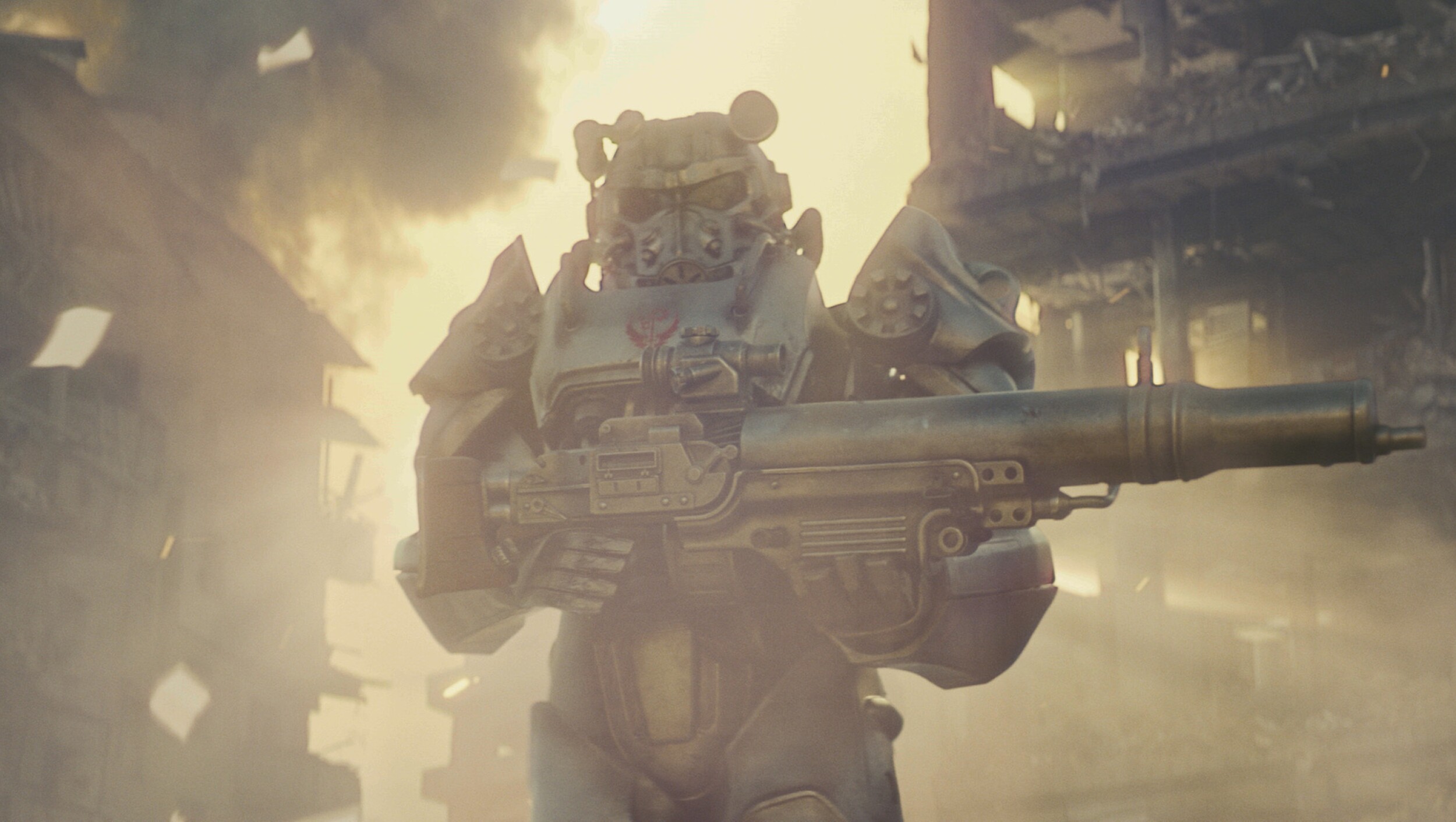Based on one of the most celebrated video game franchises of all time, Fallout premieres exclusively on Prime Video on April 10 in more than 240 countries and territories worldwide. The ambitious new series from Amazon MGM Studios delivers an imaginative post-apocalyptic world with a gorgeous retro futuristic atmosphere, nuanced characters, and breathtaking settings to explore.
Set in Los Angeles in the year 2296, 219 years after a nuclear apocalypse decimated the planet, Fallout’s narrative follows a small privileged portion of the population dwelling in luxurious underground Vaults (shelters), and the unfortunate souls living above ground on the irradiated surface struggling to survive the violence and lawlessness that plague the inhabitants.
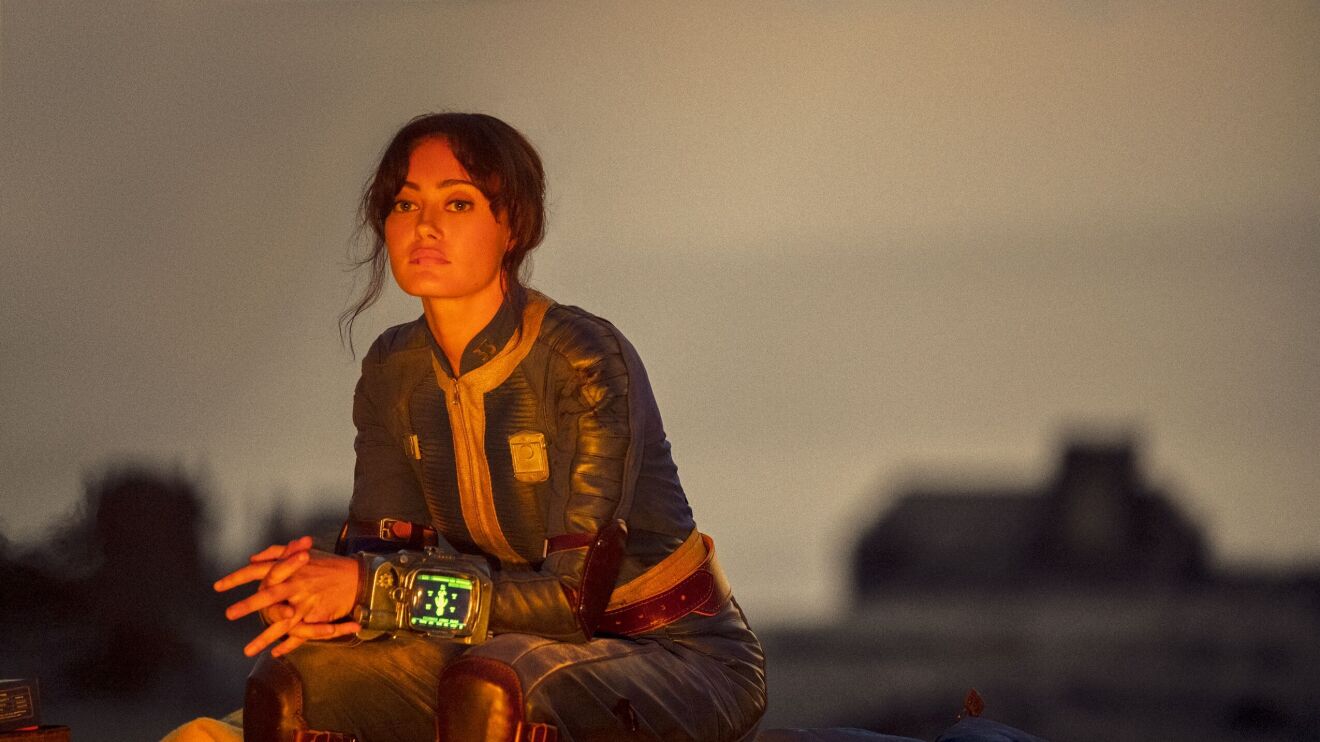
The Fallout video game franchise is one of the most successful titles in the industry, with tens of millions of copies sold worldwide and numerous accolades, including an induction in the Video Game Hall of Fame by Computer Gaming World, and has been hailed as one of the greatest video games of all time by IGN and Polygon.
It was a massive undertaking to bring Fallout’s expansive story and dynamic world-building from video game consoles to a live-action series on Prime Video. One of the key figures in this development process is executive producer and Bethesda Game Studios’ Todd Howard, who has been a part of the Fallout universe for over a decade as both a Game Director and producer. Howard is one of the most influential figures in gaming. In 2017, he was inducted into the Academy of Interactive Arts & Sciences Hall of Fame and was listed by IGN as one of the Top 100 Game Creators of all time.
“We didn’t want to adapt a specific game,” Howard said. “We wanted to move the timeline forward and tell a new story in the world because the world of Fallout has always been the main character in our games. Partnering with Jonathan Nolan on this and telling a new story helped us bring Fallout’s world to life.”
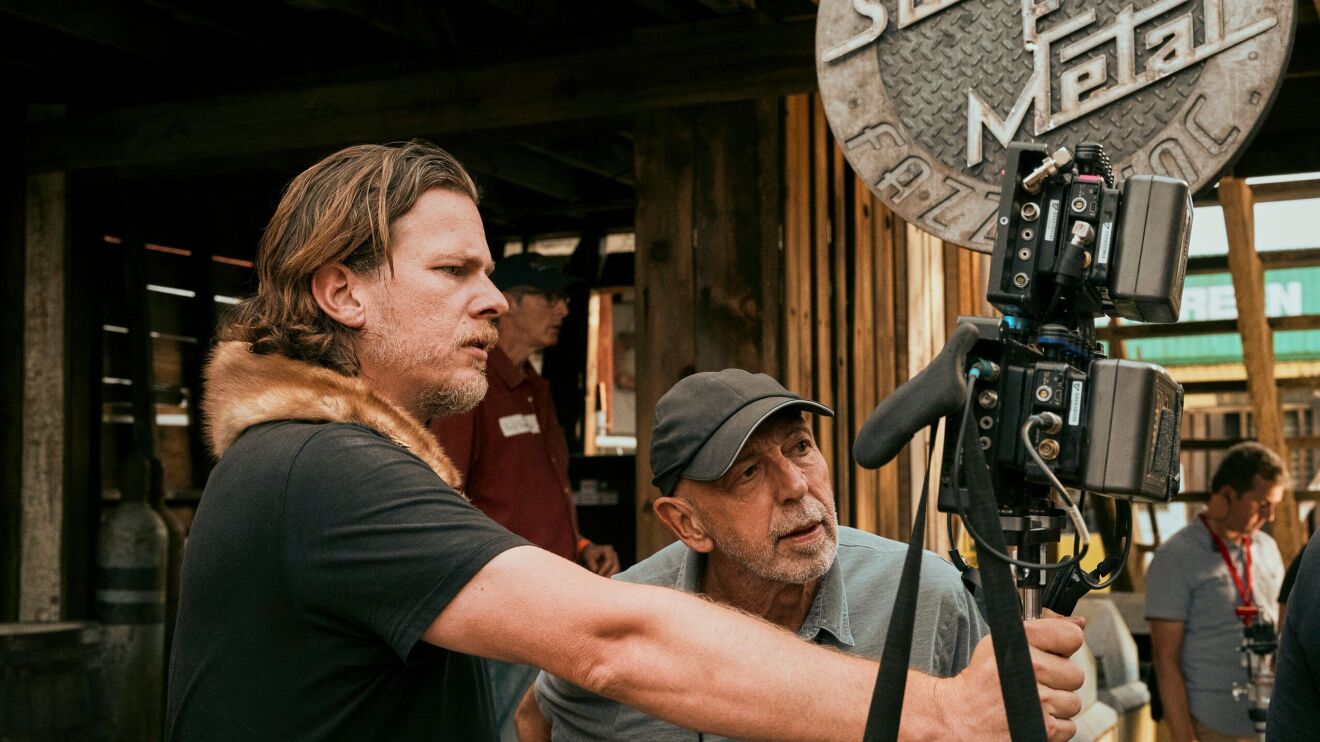
With such a sizeable narrative canvas at their disposal for Fallout’s first season, Howard, executive producer and director Jonathan Nolan (Batman Begins, Westworld), and co-showrunners Geneva Robertson-Dworet (Captain Marvel) and Graham Wagner (The Office, Silicon Valley) discovered that finding the right story to tell was no easy task.
Nolan (Batman Begins, Westworld), who also directs Fallout's first three episodes, was instantly captivated by the world after playing Fallout 3. “I just loved the ambition of it,” Nolan said. “I loved the tone of it. I loved the oddness of it. I loved that you could chart your own course through this world, which was one of the most challenging things to figure out while developing the series. It started for me as a fan of the games, and then I got a chance to sit down with Todd and hear this delicious proposition of taking this incredible universe and figuring out a way to bring it to life on screen. It's just irresistible.”
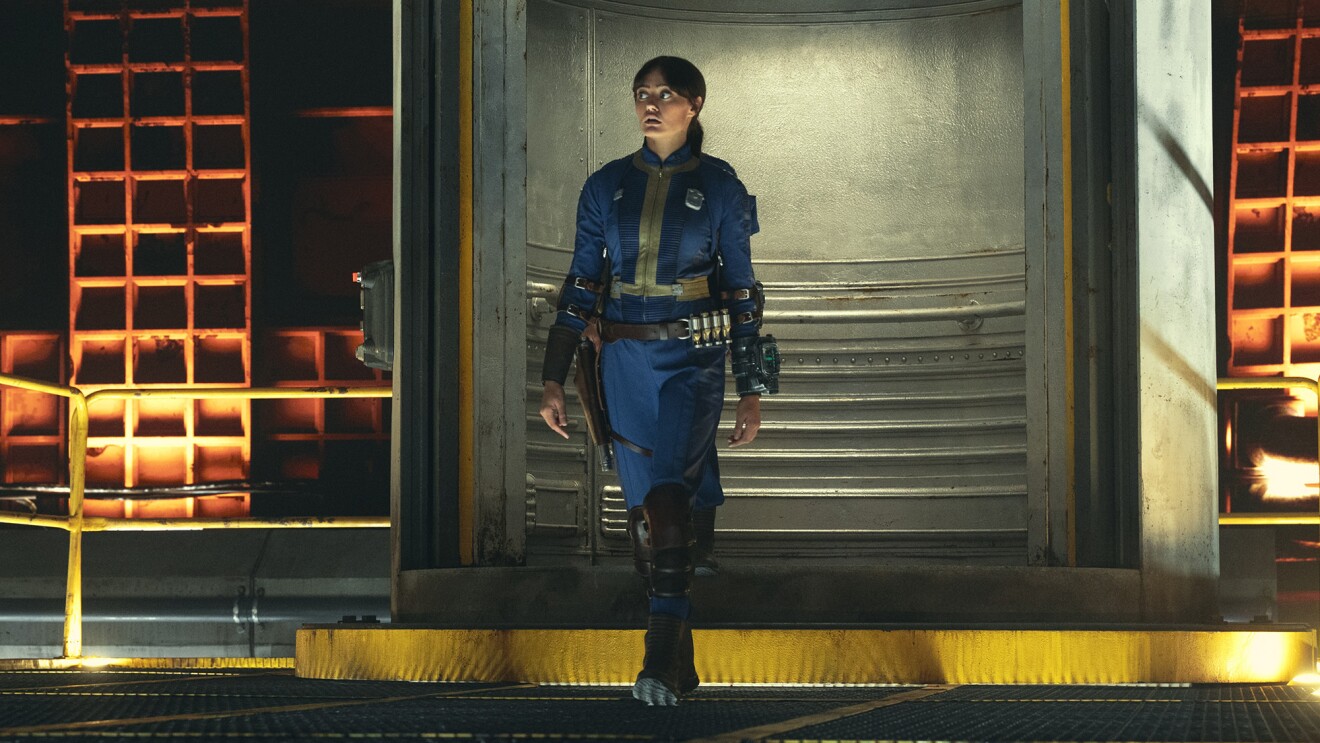
The process of developing a live-action version of Fallout is something that Howard has been considering for over a decade. “I first met with producers in 2009,” Howard said. “Great people, very successful, and I didn't want to do any of that. I just didn't see Fallout translated into a two-hour movie. When prestige television starts coming of age, you start thinking this would be the right approach. This has the time and the literal landscape to do it justice. I love the work that Jonah did in movies like The Dark Knight, and Interstellar, you can see Interstellar all over Starfield, the last game I did, as far as inspiration, and then see Westworld and the other shows that he worked on. Fortunately, we clicked, and it’s been an enjoyable process.”
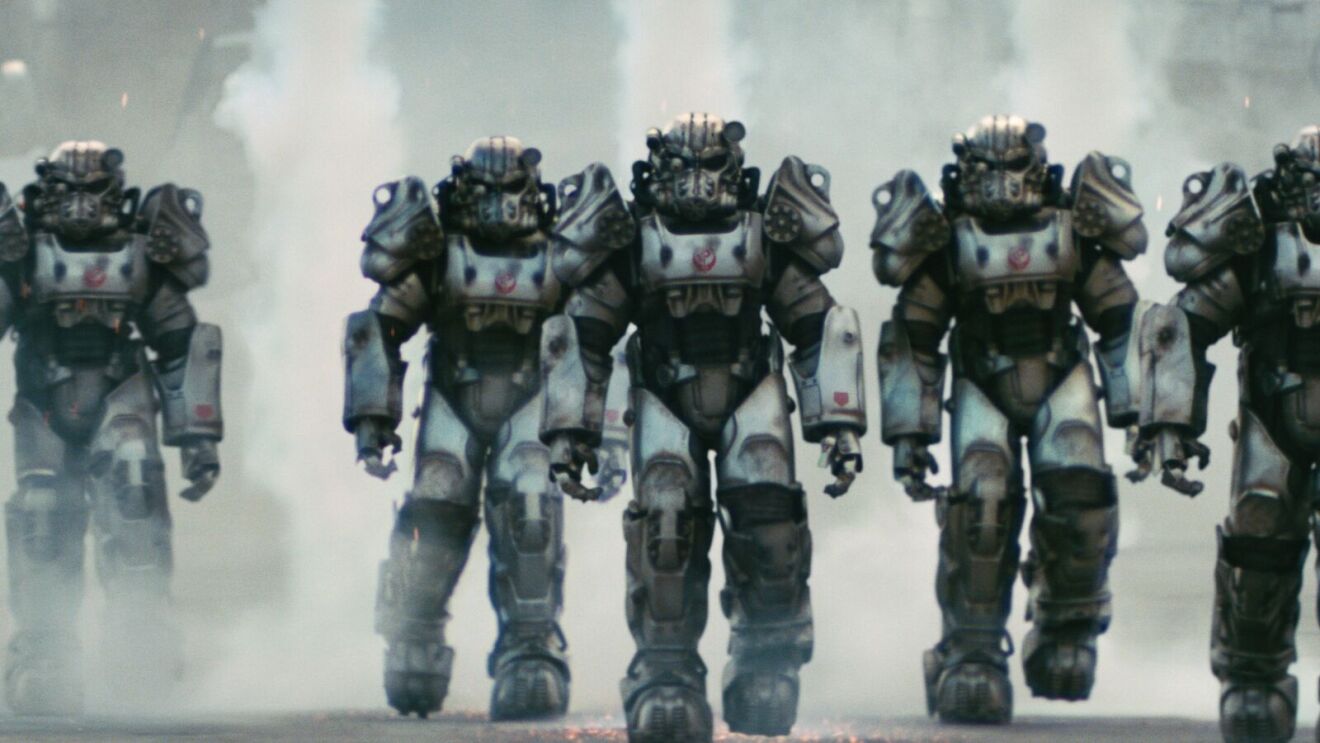
Co-showrunner Graham Wagner relished the opportunity to work with Howard and his team at Bethesda, who were tremendously helpful in ensuring that the series was as authentic as possible.
“Todd was just such a great collaborator,” Wagner said. “It never felt like he was trying to get in there and force us to do things we didn't want to do. He would just get us to read the scripts and be like, ‘You know what? We got in trouble in that area. Keep an eye on that.’ It was great advice from a guy who's already had similar conversations. That was unbelievably helpful. And then James Altman from Bethesda was on set every day, assuring us that we were getting it right and not accidentally blowing up 25 years of canon. So, if we ever did blow up the canon, we did it with intention.”
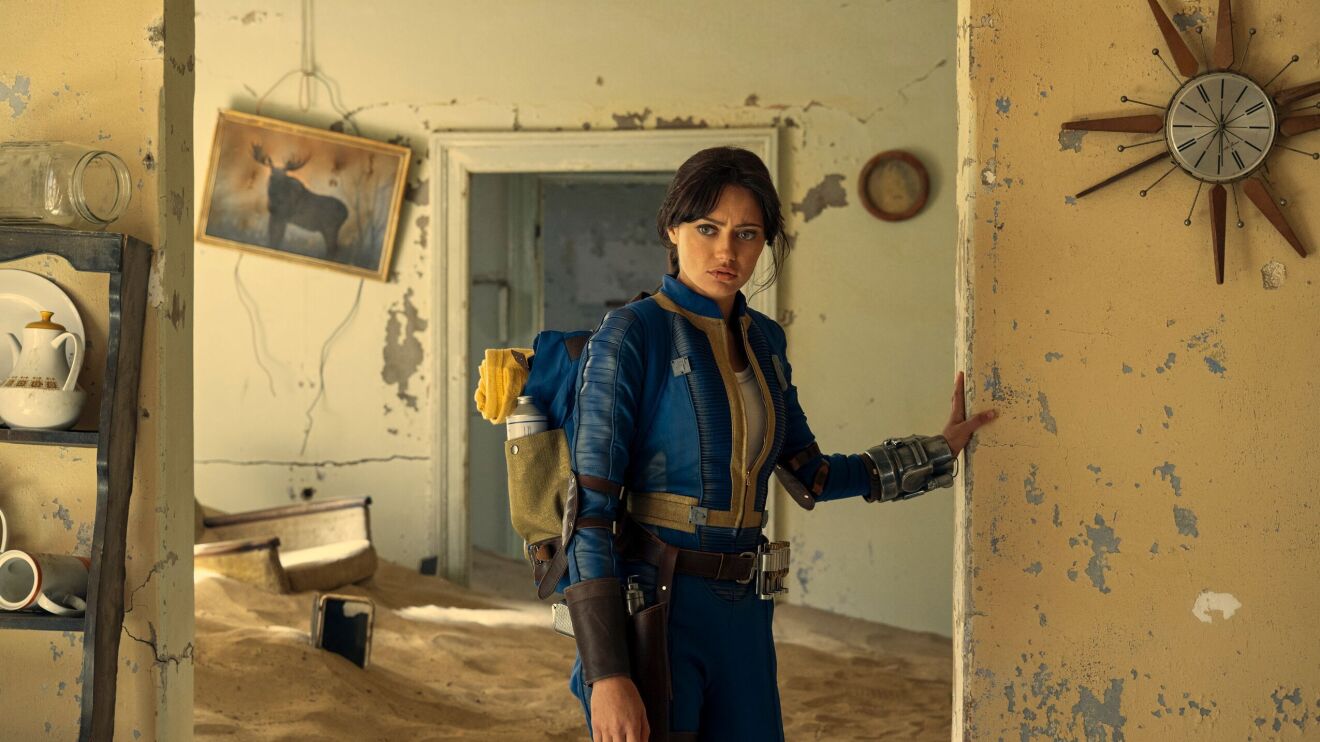
One of Fallout’s most fascinating aspects is its retro futuristic aesthetic, which applies to all the buildings, clothing, and weapons in this alternate history. Fallout exists in the future, but it’s not the future as imagined by our present-day minds.
“Part of what makes Fallout the most unique is the world before the bombs fell, before the apocalypse,” Howard said. “The way we envision the future, say in the '50s and '60s when nuclear power comes on, and you see the art from the time period, robots, and nuclear-powered cars. That future comes into the past, but then it goes terribly wrong. And there's the old duck and cover, this naivete of the nuclear future. If you see a bomb, just get under your desk, thumbs up, it'll all be okay. So it's sort of that naivete mixed with the harshness of the wasteland that comes to be. So it goes between the harshness and that winking at the camera dark humor.”
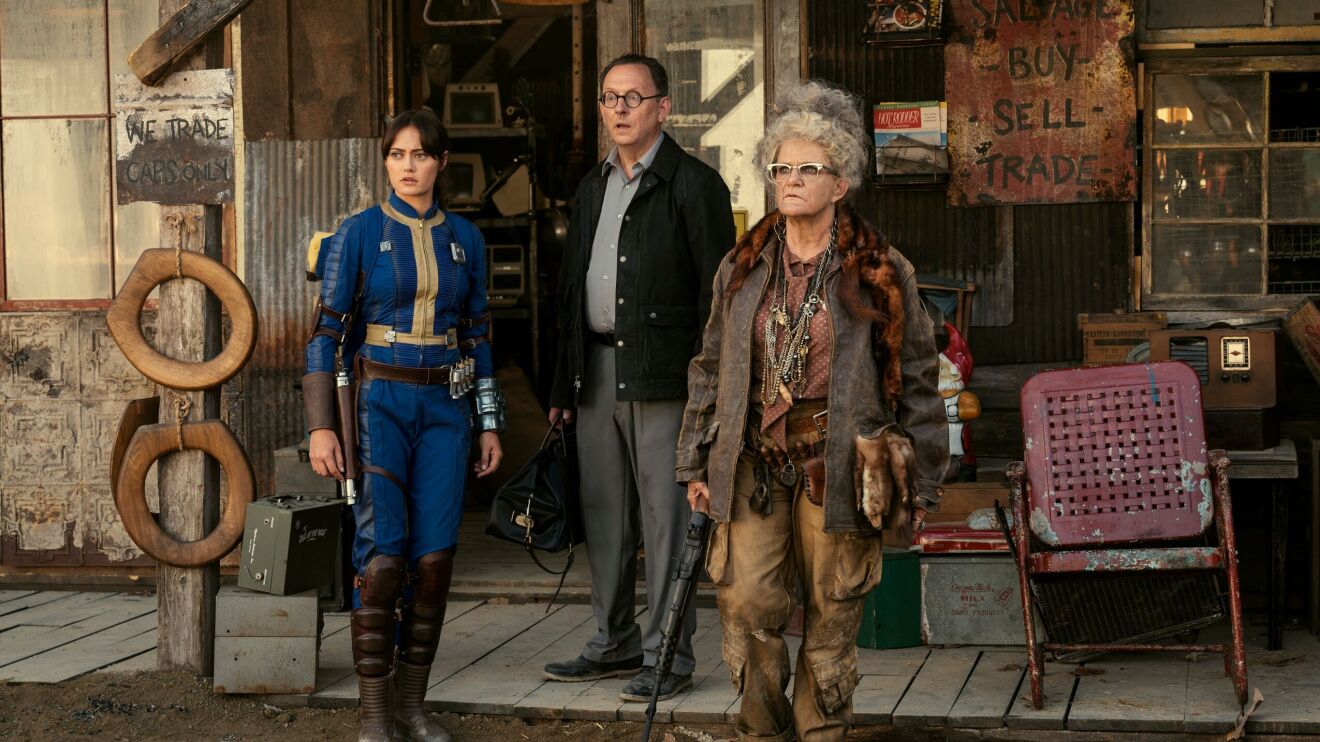
To help build Fallout’s fascinating world from the ground up, Howard and his team at Bethesda worked closely with production designer Howard Cummings to ensure that Fallout looked and felt as true to the source material as possible. “We shared everything that we had down to the 3D files. So, they had the meshes and the artwork from the actual game. They had great production designs, using things like 3D printers. And anytime they were going to change some things, they would run it by us, even minor changes. There was so much attention to detail from the get-go.”
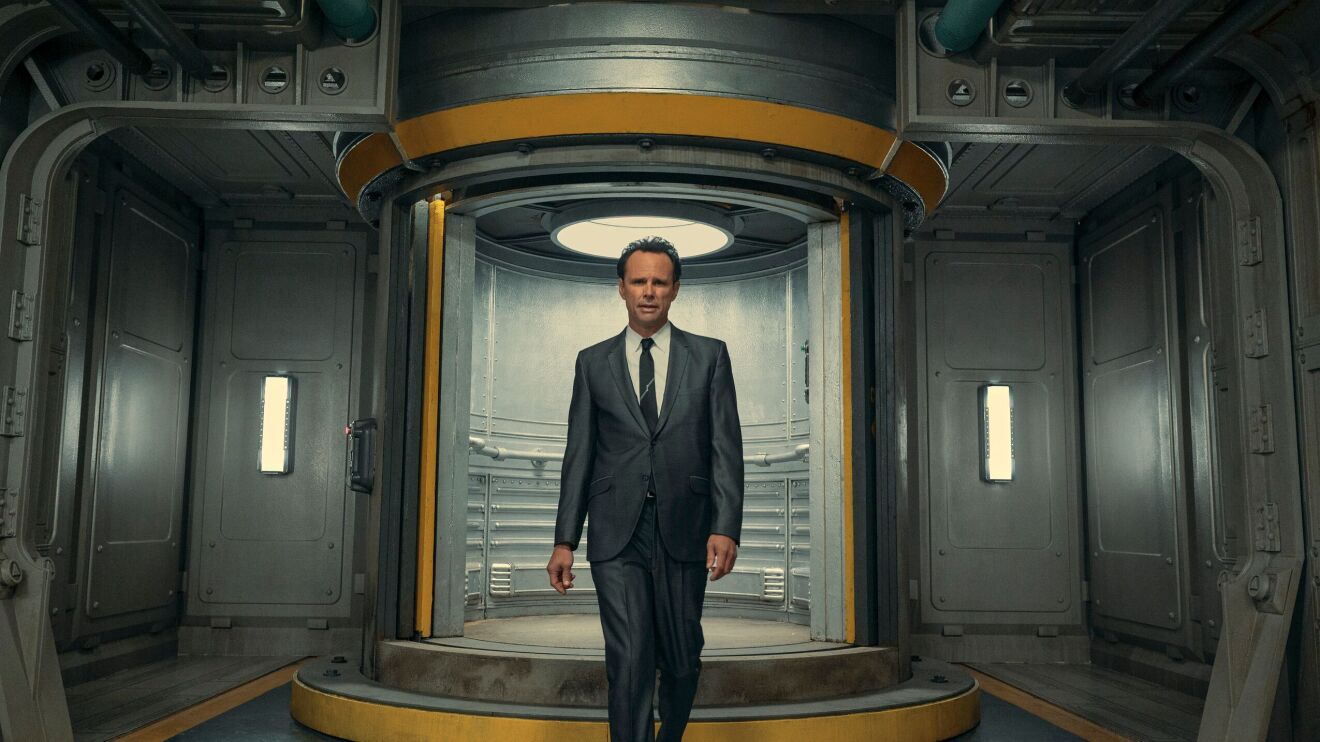
One of the giant indoor sets in Fallout Season One is the Vault—one of many underground bunkers, each capable of housing a village full of people, created by the enigmatic Vault-Tec Corporation—which was built on a massive sound stage in New York City. For Howard, it was like seeing one of his games brought to life in ways he never would have imagined.
“I was stunned. It was down to every little detail,” Howard said. “There's also this unique thing: how they make the underground vaults. The walls are not concrete. They are, but they're molded from wood. So, there's a wood grain, which is weird. Most people don't know this. In the games, you can kind of see the wood in the concrete. And when I got in the Vault on set, I walked up, thinking, you even have the subtle wood grain, which I don't think a camera would pick up. But it's how the concrete for those things is cast. And to the computers and the lights and the knobs, even the control panel for the giant vault door, but also the little vault doors for the individual things, they look right, they work. It's just crazy. I was blown away.”
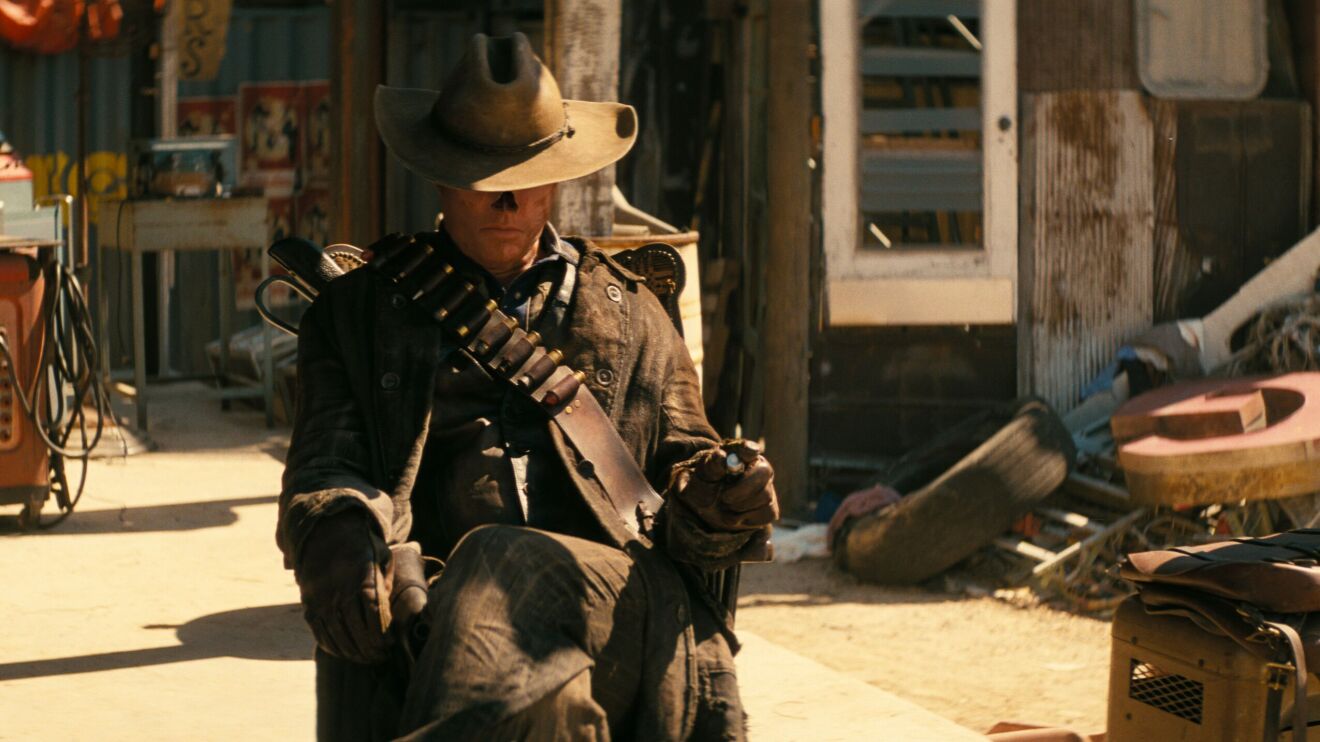
While the Fallout franchise has over six video game titles and a seemingly endless number of stories to explore, Howard was excited for the series to spend more time in the past, before the nuclear apocalypse, something the games haven’t delved into as much.
“Fallout 4 was where I wanted to show the past, and I loved the game's opening. But after that, I was like, ‘We didn't get to do enough of it.’ And so that was one of my notes early on, and what Graham and Geneva did delving into things smartly that we hadn't in the games, like the Red Scare, what was the feeling of communism in America, and what is Vault-Tec really up to?”
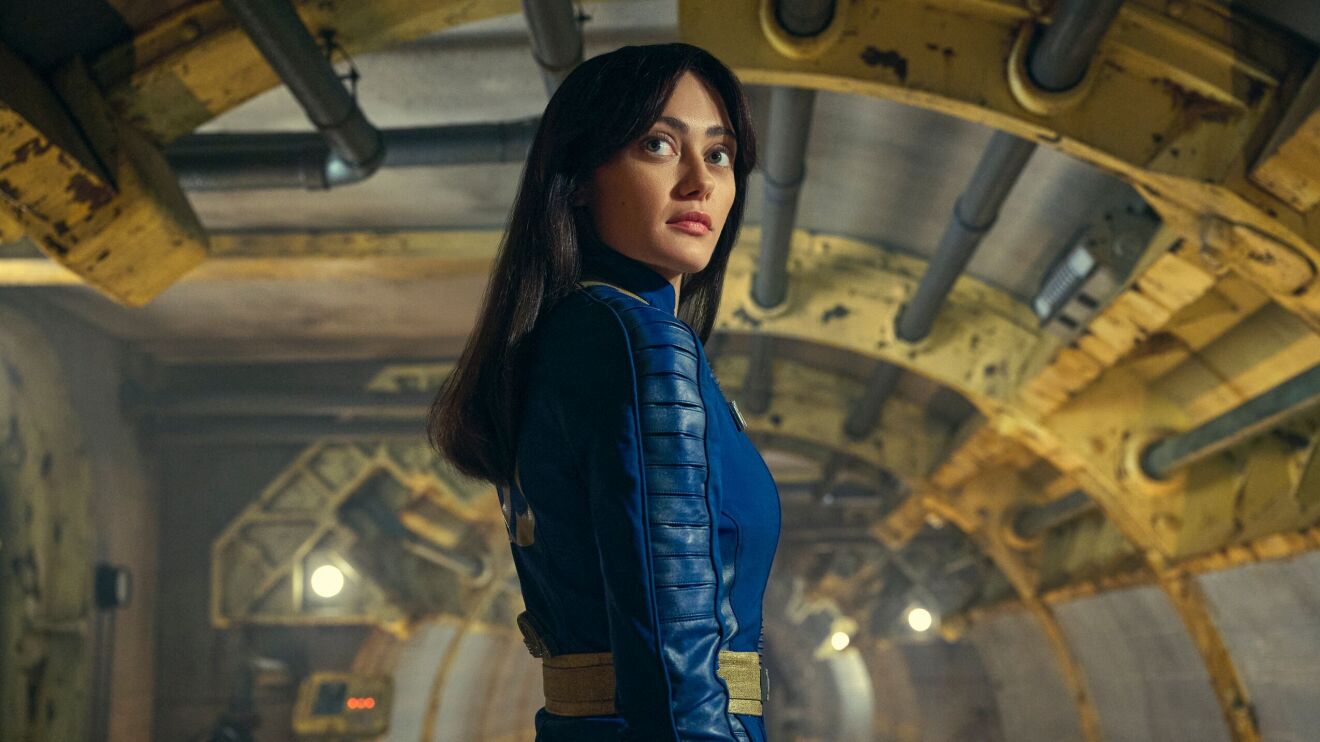
Vault-Tec is the pre-war defense corporation that designed and sold the Vaults to protect the more affluent part of the population in the event of a nuclear holocaust. “Vault-Tec was something that Graham and Geneva latched onto,” Howard said. “They were interested in what makes Vault-Tec tick. Why are they doing what they're doing? Are there other plans afoot? And I had a lot of conversations with them about it, and I think what they brought to it was fresh and unique, but I don’t want to spoil it for you.”
Even with all of the winks and nods to those familiar with the Fallout video games, Howard and the rest of the creative team knew the series had to be accessible for those taking their first dip in this imaginative post-apocalyptic vision. “Every time we do a game, we assume no one's played Fallout. The show also does that, where the world-building and lore are there to explain how the world got to where it is, but we're going to dive in and approach these characters and this story in a fresh new way.”
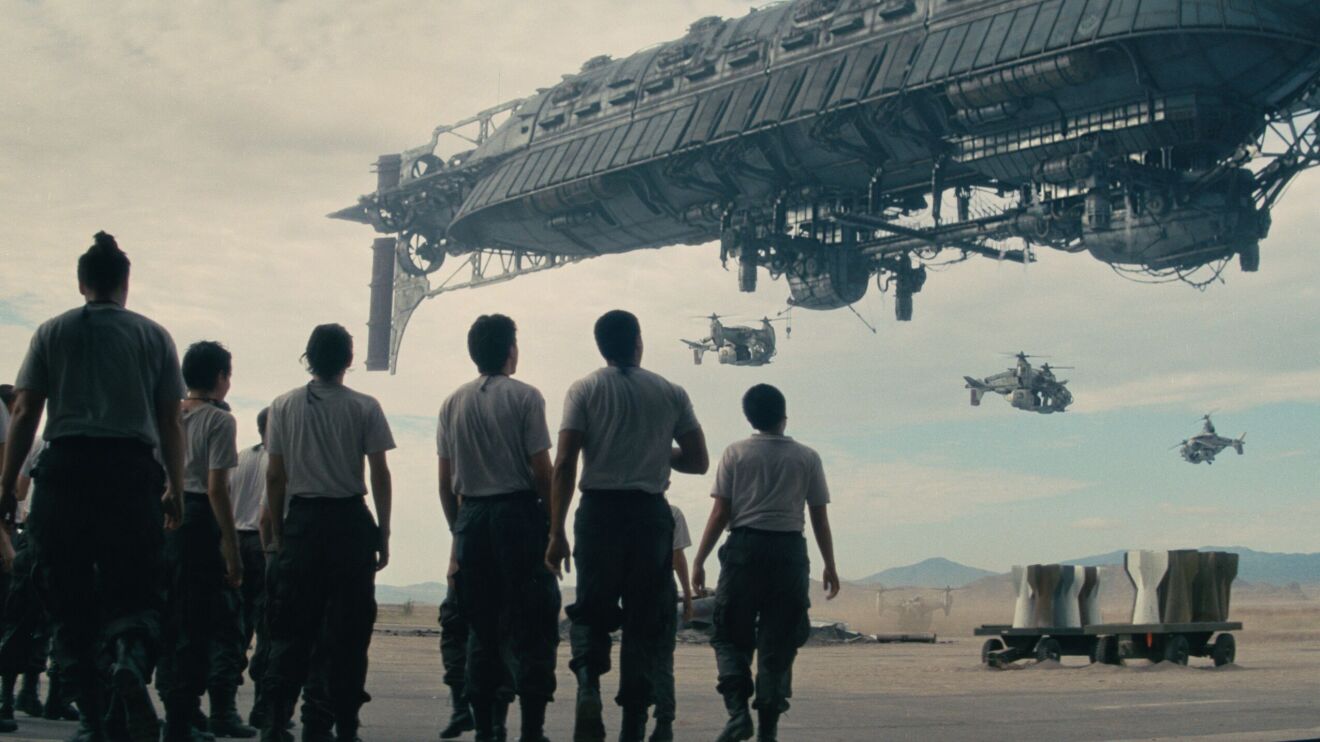
Howard can't wait to introduce Fallout to a new audience that has never played the games. “I just think the world of Fallout is awesome,” Howard said. “For a lot of people, the game can be intimidating. They don't want to sit there and learn, or they can't do controls. My mother doesn't get to play Fallout. So, I'm just excited for people to experience this world and all that's awesome about it and bring it to all new audiences and fans of the series, who will experience something new in it.”
Watch Fallout streaming on Prime Video now..



